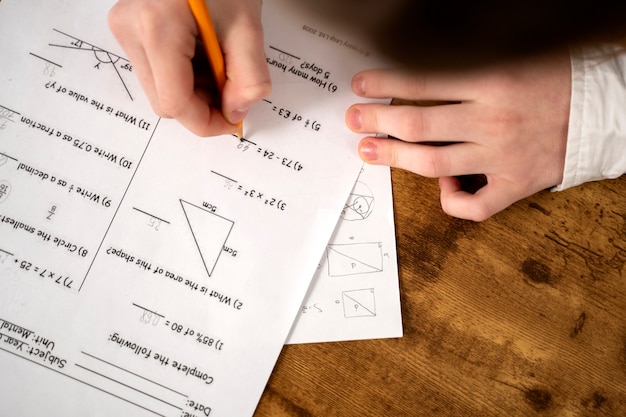
Study Hard, Play Harder: How To Incorporate Fun Into Your Academic Life
Achieving a balance between academic rigor and personal enjoyment is a challenge faced by students worldwide. Striking this balance can significantly enhance both mental well-being and academic performance. By incorporating leisure activities into your routine, you can maintain motivation and improve concentration. Read on to discover strategies to fuse fun with your studies effectively, creating a harmonious educational journey. Below, we offer practical advice to help you navigate the demands of your academic life while leaving room for entertainment and relaxation.
Balancing Study Sessions with Leisure Time for Academic Success
Maintaining a healthy balance between coursework and leisure is crucial for students. Alternating study sessions with short breaks is essential to stay motivated and avoid burnout. One effective method is the Pomodoro Technique: study for 25 minutes followed by a 5-minute break. This approach not only boosts concentration but also integrates regular leisure time throughout the day. After four sessions, take a longer break to indulge in hobbies or socializing.
When planning your week, allocate time for personal interests like an online sweepstakes casino, movie nights, or exercise classes. This ensures that leisure activities are prioritized rather than overlooked. Having these breaks and activities scheduled provides motivation and enhances the overall learning experience. Achieving a balanced routine tailored to your needs can lead to better academic performance and a more enjoyable student life.
Tailoring Your Study Environment for Productivity and Play
Your workspace significantly impacts your ability to stay focused and enjoy relaxation time. To optimize productivity, organize your desk with all necessary tools and minimize distractions. Create separate areas for work and leisure to help your mind switch gears effectively. For instance, reserve your desk solely for studying and designate a comfy spot with books or games for downtime.
Lighting is crucial too: bright, cool-toned lights boost alertness for studying, while warmer, dimmer lighting promotes relaxation after work. Adding plants and decor you love can reduce stress and enhance creativity, transforming your space into a productive and enjoyable environment.
Integrating Social Activities into Your Study Routine
Social interactions are crucial for students, offering stress relief and enhancing enjoyment. Integrating these activities doesn’t mean neglecting academics. For instance, study groups blend collective knowledge sharing with bonding among peers. Planning bi-weekly sessions with classmates to review notes or prep for exams fosters deeper understanding and social connections. Educational outings like museum visits or guest lectures related to your field provide a refreshing break while staying connected to your studies.
These activities offer relaxation and intellectual stimulation beyond the classroom. Engaging in extracurriculars such as sports or clubs not only helps unwind but also builds networks and adds purpose to your routine. It’s a holistic approach to college life that enhances both personal growth and academic success. Learn more about earning your BS in MLS online at online.uc.edu/undergraduate-degrees/bs-medical-laboratory-science/.
Embracing Technology for Efficient Learning and Entertainment
In today’s digital age, technology has revolutionized how we learn and entertain ourselves. Integrating tech into education enhances productivity and enjoyment. Online platforms and digital libraries provide instant access to vast knowledge, making learning flexible and engaging. Gamified learning apps and websites transform studying into fun challenges, boosting retention and comprehension through interactive formats. Many offer social features to connect with friends and learners globally.
Technology also offers abundant entertainment, from streaming services to popular games. It’s important to balance these with study time by setting clear boundaries, ensuring academic focus isn’t compromised. Tech facilitates personal connections by enabling easy communication with friends and family, regardless of distance. Whether through video calls or shared online activities, it helps maintain strong support networks during busy academic periods.
Prioritizing Mental Health with Stress-Relieving Hobbies and Study Techniques
Effective study habits are crucial, but so is looking after your mental well-being for academic success. Engaging in hobbies like yoga, meditation, and creative arts can give your mind a break from studying and help reduce stress. Including relaxation techniques in your study routine can improve focus and performance. Try short meditation or deep-breathing exercises before starting to study, and take mindful breaks during study sessions to maintain a calm mindset. Additionally, to further enhance your relaxation, you might explore options like Massage Therapy in Irving, TX (or elsewhere), or practice stress-relief yoga. Both of these activities can be effective ways to alleviate tension and promote overall well-being.
If you’re struggling with mental health, universities often provide counseling and support services. Seeking help shows strength and can provide strategies to manage stress and build resilience. Don’t forget the basics of good sleep and nutrition—they’re essential for mental health. Taking care of these aspects will boost your cognitive abilities and emotional balance, preparing you to handle academic challenges effectively.
Overall, balancing your academic journey with leisure isn’t just a luxury; it’s essential for a healthy life. Designing a study schedule that includes enjoyable activities, personalizing your study space, staying connected socially, using technology wisely, and prioritizing mental well-being all contribute to a richer educational experience. Striving to study hard and play hard not only improves academic performance but also fosters happiness throughout college and beyond.





